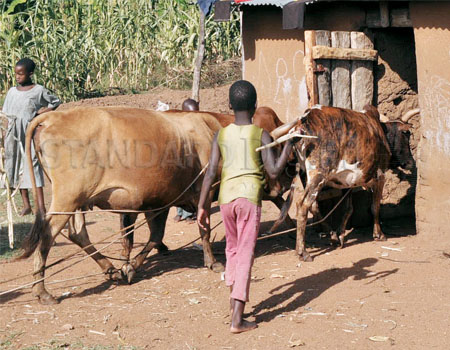×
The Standard e-Paper
Stay Informed, Even Offline
 |
| A boy drives his family’s cattle into their shed in Nyameche village, Kuria East district [PHOTO: COLLINS ODUOR/STANDARD]. |
By MANGOA MOSOTA
Migori, Kenya; Five exterior doors lead to the mud-walled house with an enclosure that forms nearly a circle with dotes of cow-dung on the ground.